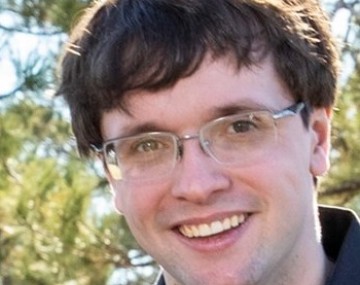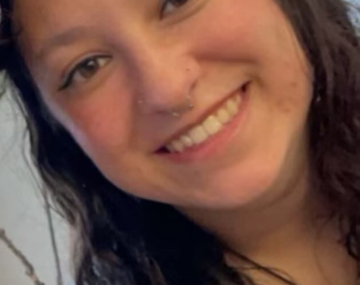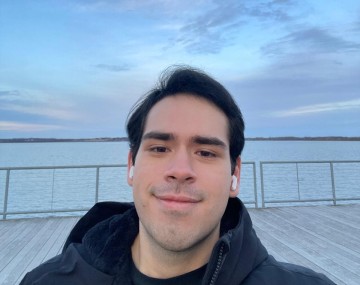Graduate Students

Teagan Baiotto:
I study how agricultural intensification contributes to biodiversity change, especially among wild bee communities. Much of my work uses trait-based approaches to understand how species are differently exposed to anthropogenic threats including pesticide applications and changes in floral and crop diversity. I am passionate about using this research to support biodiversity conservation in managed landscapes.

Kate Browning:
I am a second year PhD student in the Lazzaro lab. After completing my undergraduate degree at UC Berkeley in Molecular Environmental Biology, I spent five years in biotech working on gene synthesis and single-cell mRNA sequencing technology. I am currently studying translational changes in the fat body of Drosophila melanogaster while mounting an immune response as well as other regulators of protein synthesis including amino acid availability.

Mason Chandler
As a PhD student in the Rivera Lab, my research aims to evaluate the behavior and development of insects that vector plant diseases, such as the three-cornered alfalfa hopper, as well as that of other Hemipteran pests. Specific systems I utilize in my research include electropenetrography, olfactometry, and flight mills. Ultimately, I intend for my research to help fill in knowledge gaps regarding agricultural pests and their related diseases to improve integrated pest management strategies.

Jasmine Che:
I am a first year Master's student in Dr. Harrington's lab where my research will broadly be focused on vector-borne disease biology specifically pertaining to mosquitoes. After completing my undergraduate studies at Washington State University in Biology, I spent five years working for a local mosquito control district where the majority of my work involved disease surveillance for West Nile virus in our Culex populations. I am now looking forward to strengthening my knowledge and experience in the field of entomology during my time at Cornell.

Robin Chen:
I study how arboviral proteins are trafficked in midgut and salivary gland epithelial cells of the model organism Drosophila melanogaster and the arbovirus vector Aedes aegypti in the laboratories of Pr. Nicolas Buchon and Pr. Gary Blissard. Understanding the mechanism of viral protein trafficking in insects could lead to the development of novel methods to reduce vector competence.

Jenny Cheung:
I am a PhD student in Dr. Laura Melissa Guzman’s lab, interested in understanding how species communities form and persist, with a focus on applying Bayesian methods to infer species assembly processes from diverse biodiversity data, ranging from phytoplankton to pollinator-plant interactions to food webs, across space and time.

Chloe Cho:
My research interests as a Ph.D. student in the Poveda Lab include how local and landscape factors impact natural enemies and their potential to provide biological control and other ecosystem services in agricultural landscapes. I’m passionate about science communication and collaborative science that works with growers and the general public to drive useful, inclusive, and accessible science.

Hyun-Yong Chung:
I hope other forms of being are advocated for in my research. As an entomologist in the Anthropocene, I delve into conservation ecology to assist biodiversity in flourishing within spaces where the modern distinction between "nature" and "artificiality," such as solar fields and the Korean Demilitarized Zone, becomes blurred. The restructured networks, interactions, and microevolution enhance my inspiration. As a phenomenologist in the Chthulucene, guided by Object-Oriented Ontology (OOO) and Multispecies ethnography, I critique the modern essence inherent in conservation biology and explore alternative biologies, extending into practical domains
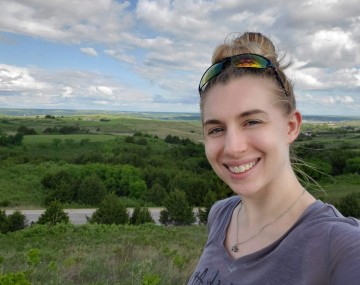
Dani Dryer:
My research interests aim to explore how the application of pesticides affect pollinator foraging behavior, specifically with regards to how pesticides alter plant volatile organic compound (VOC) emission that is important to pollination. I also am intrigued by the role VOCs play in host-parasite systems, such as with small hive beetles (Aethina tumida) and honey bees (Apis mellifera), and which VOCs have the potential to be exploited for pest control measures.

Nathalia Florez Gomez:
I'm passionate about bee diversity, and I'm interested in phylogenetics, evolution, and taxonomy. My research, as graduate student in Danforth Lab, is focused on understanding the evolution of host-plant choice of specialist bees. For more info check out my website at: naflorezg.github.io/naflorezbee/

Alessandra Girard-Mejia:
I come from Guatemala with a Bachelor of Science degree in Biochemistry and Microbiology, and I care about public health issues in developing countries, such as vector-borne infectious diseases, their surveillance, prevention, transmission, and complications caused by external factors like climate change or limited to healthcare. Currently, I’m a PhD student in the Taracana-Agarwal Lab and my research is broadly focused on the sex differentiation pathway in Aedes mosquitoes.
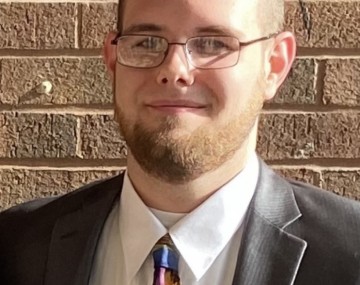
Yaroslav Grynyshyn:
Past research and work experiences further pushes me to ask how pests, natural enemies, and pollinators interact with the biotic and abiotic environment. As a master’s student at Cornell University, my goals are to broaden my understanding of insect ecology, the enhancement of biological control, and develop effective integrated pest management techniques. My interests are thematically aligned with the research conducted by Dr. Samantha Willden which focuses on controlled environmental agriculture and plant-insect interactions. The scope of this research is complimented by extension activities, improving management practices by way of applied research, and determining the efficacy of biocontrol agents such as Beauveria bassiana in high tunnel winter greens and tomato.

Gen-Chang Hsu:
My research interests revolve around the interplay between top-down and bottom-up interactions in tri-trophic systems as well as the ecology of fear—the non-consumptive effects of predators on insect herbivores. I hope my work can help develop strategies for enhancing pest control in agro-ecosystems.

Xuerong Jin:
I have a broad interest in studying the gut immune systems of Drosophila and mosquitoes. My research aims to decipher the roles of specific immune effectors and pathways in determining the outcome of the immune response against various microbes, as well as to investigate the localization and regulatory mechanisms that govern these immune components. My interest further extends into exploring the dynamic interplay between the host immune system and microbes within the midgut, and how these interactions mutually shape each other.

Naoki Kihata:
I am a PhD student in Dr. Ping Wang's lab studying the genetic mechanism of Bacillus thuringiensis (Bt) resistance in cabbage looper moths. While Bt is a common and successful biological control agent, these insects are one of the few pests that have shown the potential to develop high resistance to a wide variety of Cry toxins. By looking at the genome of genetically identical CRISPR mutants, and by analyzing the proteomic and fitness data, my research helps outline the specific mechanisms of resistance associated with each type of Cry toxin.

Shianne Lindsay:
I am interested in wild bee biodiversity monitoring, wild bee response to anthropogenic land use change, and competition between honey bees and wild bees. My research will investigate a "two birds, one stone" approach to more sustainable land use change by integrating pollinator habitats with solar energy fields.

Raelin Mamaril:
I am a master’s student in Dr. Laura Harrington's as part of the NEVBD initiative! Broadly speaking, I am interested in studying disease vectors and their relationship with the environment, animals, and people. I'm passionate about science communication and approaching problems with a multidisciplinary lens. In my free time, I like to admire flowers and frogs.
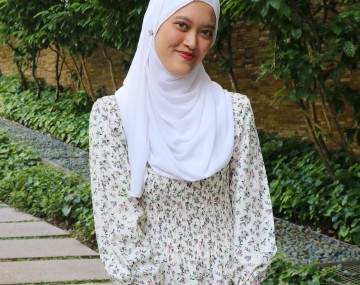
Rasyidah Mudzzaffar:
I am a Master’s student in the Willink Lab, whose research focuses on insect genetics and evolutionary biology. I am investigating transcriptomic profiles across developmental stages in damselflies as well as comparing expression profiles across species to uncover patterns of divergence and adaptation. My broader interests include the genetic mechanisms underlying animal development and evolution, with a secondary interest in sustainability.

Michael Mueller:
Currently I am exploring entomopathogenic nematode aggregation pheromones via bioassay in the Applied Chemical Ecology Technology lab here at Cornell. Interspecific dispersal compounds have already been shown to exist between entomopathogenic nematodes and free living bacteriovorus nematode Caenorhabditis elegans, this current research has the potential to discover an aggregation equivalent.

Suleima Patt:
Insects and plants fascinate me to the point that I want to further understand the different driving mechanisms that influence the balanced ecology between insects and agricultural crops. My research focus is geared towards understanding the ecology of insects along with their interactions with the plants and the environment, and utilizing this knowledge to develop IMP strategies that promote sustainable agriculture that seeks to promote economic development in agricultural communities.

Cheyenne Reuben-Thomas:
I am broadly interested in investigating the effects of Traditional Ecological Knowledge and settler colonialism on insect diversity. Specifically, I will compare the effects of Good Fire (prescribed burning by Indigenous fire practitioners) versus anthropogenic factors (e.g., habitat fragmentation, soil contamination, and climate change) on species diversity and genetic variation in ants.
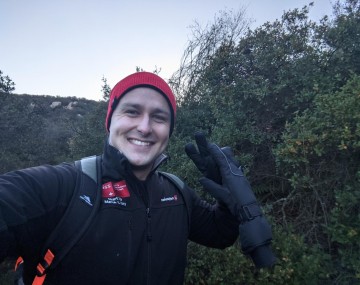
Timo Rohula:
I am a full-time Research Technician and Master’s student in Dr. Rivera’s laboratory at Cornell AgriTech in Geneva. I have seven years of prior experience working with citrus tree crops in California, with a focus on insect behavior and integrated pest management. At Cornell, my research continues to center on insect behavior and integrated pest management, with an emphasis on apple production. More specifically, my Master’s thesis research examines two economically significant ambrosia beetle species currently affecting apple orchards in New York State and studies how these species damage apple rootstocks under orchard conditions exposed to various stressors. The ultimate goal of my research is to generate data that can be used by growers to make more informed decisions regarding rootstock selection and management practices in their orchards.

Sylvana Ross:
I am interested in understanding how organismal interactions within urban environments influence the dynamics of trait variation, selection, and species diversification. I am aiming to study the genetic variation and ecological differences between urban and natural ant populations to give insight to the role of human driven environmental change on a species’ phenotypes and genotypes.

Annika Salzberg:
As an agroecologist, my research centers around landscape ecology and the effect of landscape simplification on insect body size, abundance, and diversity - and subsequently how these factors affect crop damage and yields. I’m passionate about connecting growers and researchers to produce useful science, and love doing educational outreach for the general public!

Stefane Saruhashi:
I’m broadly interested in animal thermal physiology. In my PhD I am studying how the freeze-tolerant cricket, Gryllus veletis, protects its Malpighian tubules from mitochondria damage caused by freezing, oxidative stress and their consequences in reestablishing ion balance after freezing. I am using molecular tools, enzymatic assays, high-resolution respirometry, and spectroscopy assays to gain an integrative understanding of the physiological mechanisms underlying freeze-tolerance in insects.

Morgan Swoboda:
I am interested in the ecology of entomopathogenic fungi and how we can use them as more effective biological control agents of root-feeding insects in turfgrass. For more information on my research, please visit the Soil Arthropod Ecology Lab website at blogs.cornell.edu/wickings/people/
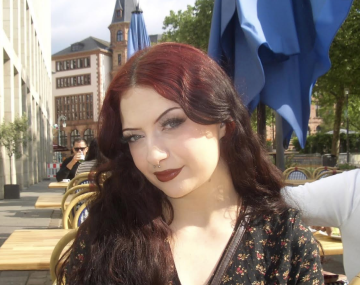
Caitlin Terry:
I’m broadly interested in how environmental change shapes the ecology of plant-insect interactions, with a current focus on apple maggot flies (Rhagoletis pomonella) in northeastern orchards. I'm seeking to understand A) changing pest phenology with climate change and B) the current relationship (i.e., demographic connectivity and rate of host switching) between the specialized hawthorn and apple races in New York State. My work connects basic questions about adaptation and host use with applied goals in sustainable pest management
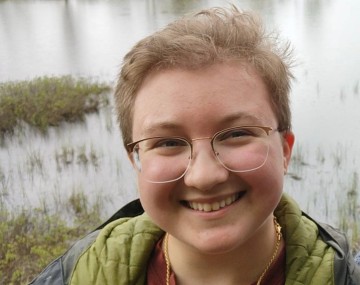
Ollie Vetrovec:
I am a Master’s student in the Nault Lab, and my research interests include insect pest behavior, ecology, and management in vegetable crop systems. I investigate the efficacy of a novel insecticide to control onion maggot (Delia antiqua) and seedcorn maggot (Delia platura), two economically relevant agricultural pests of vegetables that are notoriously difficult to control. I am also interested in assessing the population structure of seedcorn maggots collected from fields of various host crops and in various geographical locations.

Portia Wong:
I am broadly interested in using population genetics methods to answer conservation and eco-evolutionary questions about wildlife affected by human-induced environmental change. Specifically, I am working on the genomics of butterflies in California to quantify and predict how different environmental stressors, such as climate change, land use change, and insecticide use, affect their population dynamics.
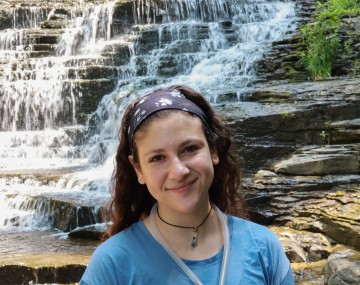
Maddie Worth:
I am a PhD candidate in Dr. Jason Dombroskie and Dr. Patrick O'Grady's labs. My research broadly focuses on the taxonomy, systematics, and evolution of crane flies in the family Limoniidae, along with floral associations of nectarivorous long-mouthed crane flies. My dissertation work is looking at the evolution of lengthened mouthparts and feeding behavior of limoniids, along with providing the first molecular phylogeny of the subfamily Limoniinae. My field work is based in the tropical ecosystems of Costa Rica, where these crane flies are extremely abundant and largely understudied, with the goal of describing and documenting new species.

Tobias Ziemke:
I am interested in insect chemical ecology, and more specifically the strategies of insect herbivores in detoxifying plant chemical defenses. My background is largely in organic chemistry and biochemistry, though I've always loved insects. I aim to use methods from biochemistry and analytical chemistry to study detoxification in the agricultural pest, the cabbage looper (Trichoplusia ni).







